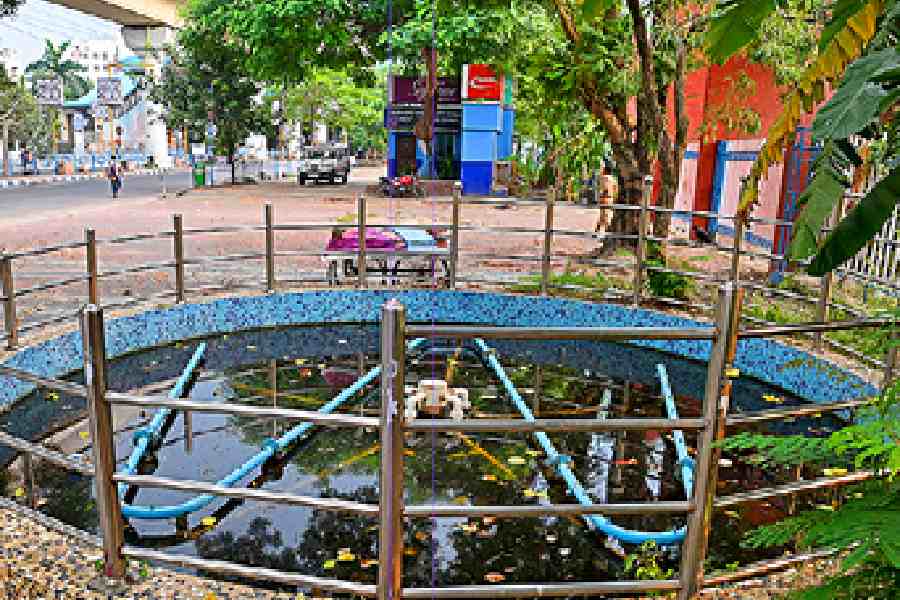A drive against dengue, involving vector-control teams, health workers and solid waste management workers, was launched in Rajarhat on Monday.
Shibani Das, a 69-year-old woman from Rajarhat’s Narayanpur, who had tested positive for dengue died on Saturday.
The drive was launched at Ward 4 of the Bidhannagar Municipal Corporation (BMC) where Das used to stay with her family.
The drive will fan out towards Chinar Park, Teghoria, Ashwininagar, Baguiati, Kestopur and Salt Lake in the next couple of weeks, a BMC official said.
According to the official, the civic teams will visit vacant plots to check and clean any build-up of garbage mounds, clear weeds and spray larvicide in the drains.
According to the civic body, since January this year, 210 dengue cases have been reported from its 41 wards.
These figures are based on the data collected from the hospitals and testing centres run by the civic body only. The civic body does not take into account tests carried out in private nursing homes.
Separate teams will conduct door-to-door visits asking the residents for symptoms and checking for any accumulation of freshwater inside the premises of residential as well as commercial buildings apart from spraying larvicide.
The BMC has formed 50 teams for the vector-control drive along with labourers and supervisors from the solid waste management department.
Banibrata Banerjee, the mayoral council member in charge of the civic body’s health department, said their teams have already sprayed larvicide and conducted a door-to-door survey in the locality where Das used to live.
“We have sent civic health teams and vector control units to spray larvicide and conduct a drive in the locality where Das used to live. Health workers are looking for people suffering from fever or showing dengue-like symptoms. Till the latest reports none of the other family members of the woman or their neighbours have a fever,” Banerjee said.
Banerjee said that no dengue patient is admitted to hospitals run by the civic body.
According to Banerjee, apart from spraying larvicide, the teams will also clear
garbage.
“We have directed the teams to check the premises of residential as well as commercial places thoroughly and spray larvicide. We have also instructed them to clean the places properly and visit each place every seven days,” said Banerjee.
Discarded items like glasses, bottles, cups and plates, among others — can turn into mosquito-breeding sites if water accumulates in them, said an entomologist.
The Aedes aegypti mosquito, which transmits the dengue virus, can breed in a spoonful of water. The egg of an Aedes mosquito can develop into an adult in seven to 10 days if the water remains undisturbed, said the entomologist.










